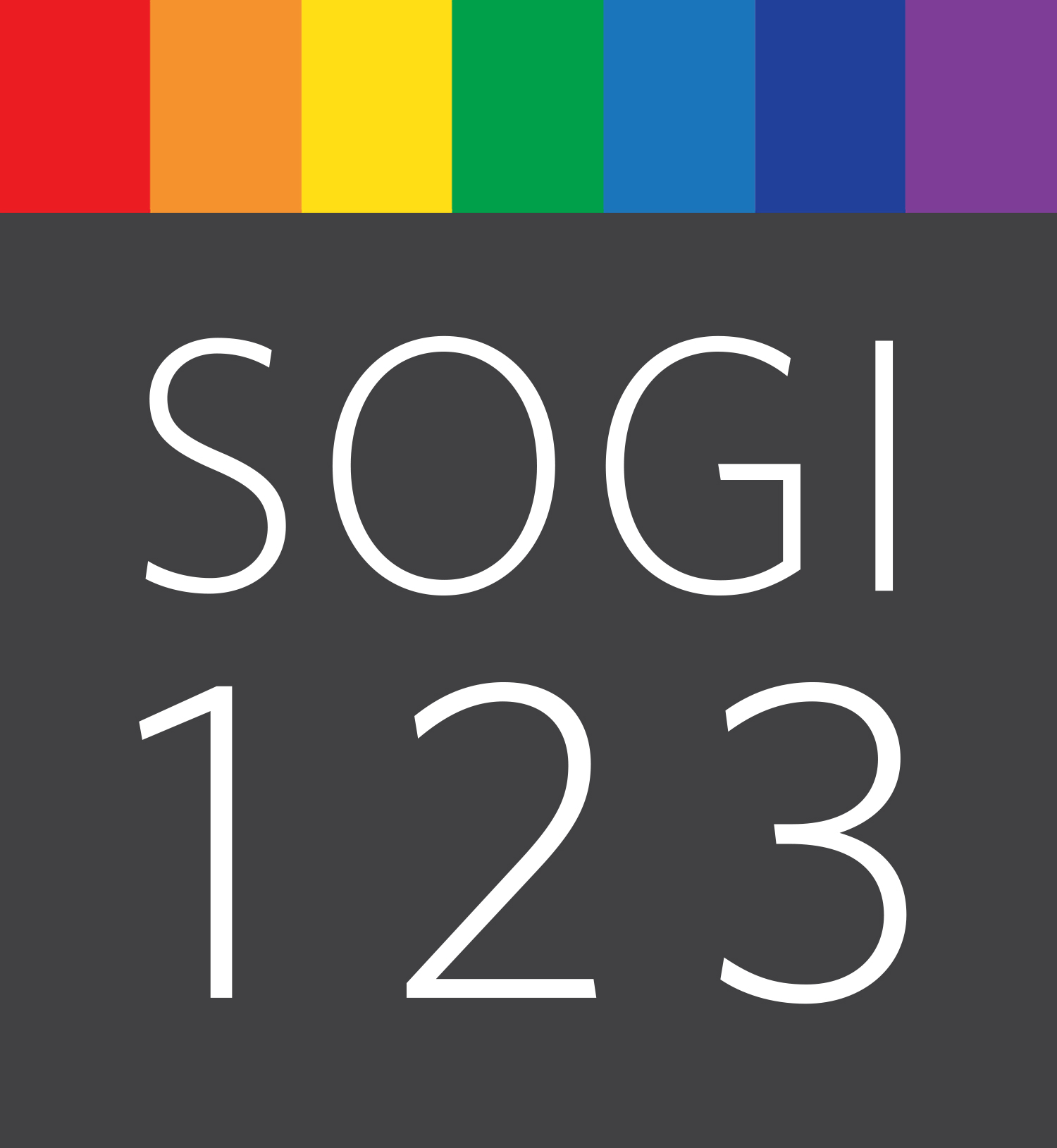
The Parents’ Guide to SOGI in Schools was created in 2023 in collaboration with educators and parents to address some of the most common questions being asked about SOGI-inclusive education. This guide is currently available in English, with additional languages being made available as soon as possible.
SOGI 1 2 3 Parent Resources were created in collaboration with BC Confederation of Parent Advisory Councils (BCCPAC) and the BC Ministry of Education to answer parent questions about what SOGI-inclusive education looks like in Canadian schools. Use the complementary presentation and facilitator's guide to learn with your parent community. French subtitles available.
Download Presentation (PPT) / Download Facilitator's Guide (PDF)
Parent Resources / Elementary Classrooms
Download to view offline (MP4)
Parent Resources / Secondary Classrooms
Download to view offline (MP4)
What does SOGI mean?
SOGI stands for sexual orientation and gender identity. Since we all have a sexual orientation and gender identity, it includes all of us. Every student understands and expresses their gender differently, with interests and choices that are common or less common for their gender. Some students may be unsure of their sexual orientation or gender identity. Others may identify specifically as lesbian, gay, straight, bisexual, queer, two-spirit, transgender, cisgender, or other. A SOGI-inclusive school means all of these experiences and identities are embraced and never cause for discrimination.
What is changing?
SOGI is one of many topics about diversity discussed regularly in schools, such as when educators speak about race, ethnicity, religion, and ability. SOGI-inclusive education simply means speaking about SOGI in a way that ensures every student feels like they belong. There is no "SOGI curriculum." SOGI is a topic that can be addressed throughout many subjects and school activities. Educators have expressed a need for more SOGI resources and training to ensure all students feel confident being themselves. SOGI 1 2 3 is simply one more way that educators can find the resources they need and learn from each other.
What will my child learn?
SOGI-inclusive education is about students having conversations about the SOGI diversity in society and the importance of treating everyone with dignity and respect. Teachers are best equipped to determine what is age appropriate for their classrooms. For example, some students are raised by single dads, grandparents, or stepparents, while some do not have a mom, and some have two. An effective K/1 lesson on family diversity will teach students that families come in all shapes and sizes. Another lesson may discourage students from saying “that's so gay,” which directly impacts the welcoming atmosphere of schools. SOGI 1 2 3 lesson plans are an optional resource for educators. They align with your provincial curriculum and are meant to be customized by educators as they desire.
Why is this so important?
Schools have the legal responsibility to proactively create safe, inclusive learning environments for all students. Some students face physical barriers, while other barriers, like sexual orientation and gender identity, are not so visible. Unfortunately, schools are not always safe places for 2SLGBTQ+ youth to be out or to be themselves. Similarly, students who express their gender in less common ways or who come from 2SLGBTQ+ families can experience school as unsafe or unwelcoming. While this has been changing, and a lot of great work has occurred over many years to improve the school experience of these students, there remains a need to ensure that all school staff who work directly with students in schools have access to tools, resources, and supports to help make a difference.
What about school policies?
Each school district, First Nation school, and independent school has the autonomy to create their own specific policies and procedures around SOGI-inclusive education to align with their provincial human rights code. SOGI 1 2 3 collects and shares educators' experiences with policies and procedures as well as any recommendations from the provincial Ministry of Education to help schools and districts with this work. SOGI-inclusive policies address such topics as safety/anti-harassment, inclusive extra-curricular activities, dress guidelines, self-identification, and confidentiality.
What can I do at home?
We all want our children and students to love themselves and thrive within their schools and communities. At home, you can be curious and learn about SOGI topics with your child. You can open up the conversation and keep it open, by allowing them to question, express, and explore their individuality as they wish, and by inviting them to talk openly about their experiences at school. In addition, you can share the values of acceptance and respecting people's differences through your own actions among friends and neighbours, so that your child learns from your example and takes those lessons back to school. When friends and neighbours are curious about SOGI 1 2 3, consider printing and sharing this double-sided brochure.


Ways to Learn More
Our
websites
On this national website and our provincial educator websites, you can learn more about SOGI-inclusive education and the resources we are sharing with educators.
SOGI
videos
Our videos include students' and educators' stories, key concepts, and more, exploring the core ideas behind SOGI 1 2 3 and SOGI-inclusive education.
This brochure was created to support brief SOGI 1 2 3 introductory conversations in your community, such as at a school PAC/School Council meeting.
Ask a teacher
Talk to your child's teachers to learn what they are teaching in the classroom and how SOGI-inclusive education is being achieved at your child's school.





